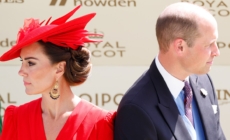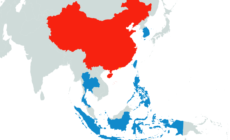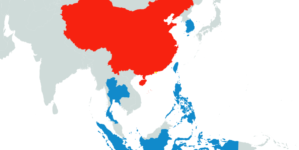-
HGTV star Ty Pennington shares three tips for budget-friendly home improvements - 6 mins ago
-
Florida City’s Housing Supply ‘Spiking’ Sparks Alarm - 11 mins ago
-
How much pressure is on the Dallas Cowboys players to deliver for new head coach Brian Schottenheimer? | Speak - 25 mins ago
-
Gulyás: Say no to a kind of politics whose clear and explicit aim is to harm Hungary - 35 mins ago
-
Here’s How Newsweek Created Special Camouflage for Slate’s EV - 54 mins ago
-
Jordan Ta’amu’s TD, Jordan Williams’s pick-six headline UFL Week 3’s top plays - about 1 hour ago
-
Kocsis: Fidesz to launch signature drive to remove those plotting with Brussels against Hungary - about 1 hour ago
-
Kate Middleton, Prince William have argued ‘for years’ about this: experts - about 1 hour ago
-
West Pacific Map Shows F-16 Jet Fleets on China’s Doorstep - 2 hours ago
-
Hungary signs agreement with North Macedonia to promote Balkan country’s EU integration - 2 hours ago
If You Think the U.S. Will Abandon Ukraine Now, You Don’t Know Donald Trump | Opinion
President Donald Trump’s recent apparent switch of positions regarding Russia and Ukraine is surprising many, but it shouldn’t. We write this not as diplomats or historians, but as informed leadership scholars who have known Trump personally for decades; and having recently spent time on the ground in Ukraine, Central Europe, and Central Asia, we believe there are good reasons for Trump to reverse his position and escape Russian President Vladimir Putin’s quicksand.
In a startling flurry of Truth Social posts and press conference remarks since taking office, Trump has revealed his pragmatism over principle. After once condemning President Volodymyr Zelensky and Ukraine, he now praises Zelensky as a seeker of peace. Similarly, Trump has flipped from expressing admiration for Putin to declaring that Putin is destroying Russia. To diplomatic scholars, this is a paradox. To leadership scholars, Trump’s reversals demonstrate the consistency of his character. That is because of three distinctive qualities of Trump’s leadership style.
First, Trump is not anchored in ideology but driven by pragmatism. In fact, in August 2015 in Trump Tower conversation, he told us he considered “going to the left of Bernie Sanders” to reach populist anger. Steve Bannon later convinced Trump, a long-term Democrat, to go to the far right as a faster route.
ROMAN PILIPEY/AFP via Getty Images
Second, he doesn’t like to be associated with “losers” or losing a negotiation. Trump avoids association with “losers” like the plague (or the pandemic), and he is quick to avoid feeling like he is on the losing end of a negotiation. Smelling defeat from Putin’s myriad military, economic, and diplomatic failures, Trump does not see Putin as a worthy ally. Furthermore, he resents Putin presumptuously acting as if he is the puppeteer, controlling a Trump desperate for a deal. As Trump fired back at Hillary Clinton when accused of being a puppet, “I’m not a puppet. You’re the puppet.” Trump now sees a weakened Putin as China’s puppet and sees China as the better ally.
Third, a key device for keeping and using power is to divide-and-conquer alliances among perceived, or prospective, adversaries. With the audacious BRICS+ Summit in Kazan, Russia last fall revealed threats posed by a new axis of evil, and it became apparent to Trump that the rise of this nascent coalition is more threatening to his influence than NATO, NAFTA, or the Business Roundtable, all prior Trump targets.
The master dealmaker has realized that Putin is drastically overplaying his hand amid his own obvious struggles, and it would amount to negotiation malpractice to fold when faced with nothing but Potemkin village illusions and blustering bullying. After all, as Trump himself has remarked, the Russian economy is under severe strain, with double-digit inflation, a currency which is devaluing, and record deficits. It could be on pace to run out of cash within a year.
That comes as Russia struggles on the military and diplomatic battlefield. It has brought North Korean troops and shoddy Iranian drones into the fight while 200,000 of Moscow’s own soldiers have killed. Russia has also faced blows in the form of the loss or weakening of foreign allies, such as Iran’s tyrannic regime and Bashar al-Assad in Syria. Other than the scandal-plagued leadership of the International Monetary Fund, which we and House Financial Services Committee Chair French Hill have pointed out, few are arguing that Russia is in any position of strength.
Trump can out-bully a bully. Trump’s threat of tougher sanctions against Putin reflects Trump’s life-long modus operandi of divide-and-conquer. Just as Trump is playing France off Germany; the UK off the EU; Boeing off Lockheed; Ford off General Motors; Canada off Mexico; and Sam Altman off Elon Musk; there seems to be a competition being set up between China and Russia for who can make a better deal first.
Trump, who always follows the money, seems to have taken to heart the counsel of top business leaders, who have shown him the size of Russia’s markets—especially after the exits of more than 1,000 top multinational firms we helped catalyze—are lilliputian when compared to the size of lucrative Chinese markets. That might have something to do with Trump’s recent friendly overtures to China, including dropping the proposed 60 percent tariff hike on all Chinese products to 10 percent; offering to unwind the ban of TikTok, and inviting Xi Jinping to his inauguration.
Some experts on Russia don’t buy the idea that anything has changed, arguing that “Trump seems to enjoy being bullied by Putin.” Such cynicism may yet prove to be correct, but Trump is not schooled in the thoughts of Clausewitz, Montesquieu, or even Kissinger; rather he is a pragmatist relying on what he believes has worked for him previously. Could the experts thus be too dismissive of the possibility that Trump’s thinking on Russia-Ukraine is genuinely evolving in real time?
If Trump truly wanted to end the Ukraine conflict no matter the cost and consequence, he could have forced Ukraine to surrender already. But in holding out and calling Putin’s bluff, he raises the ante—and that opens up the possibility that Trump, of all people, could deliver Ukraine the victory which has long eluded its grasp. Last year, the nation saw a bold flip of positions on support for Ukraine from House Speaker Mike Johnson (R-LA), which we saluted as in the spirit of Sen. Arthur Vandenberg’s 1940s flip to support the Marshall Plan from being an original opponent, or President Richard Nixon’s shift to recognize Mao Zedong’s China despite being a lifelong fierce anti-Communist. We don’t know if Ralph Waldo Emerson would likely have voted with the GOP, but he did say that a foolish consistency is the hobgoblin of little minds.
Already, enthusiastic Trump allies ranging from senators John Thune (R-SD) and Thom Tillis (R-NC), to Sean Hannity, to The Wall Street Journal editorial board have raised questions about Trump appointees and proclamations, from decreeing the end of inflation with a wave of the pen to pardoning hundreds of “cop-beaters,” and now this week the violation of federal law in dismissing the nation’s inspectors general without cause or providing the required notice, leading to additional Republican blowback. Likewise, threats of tariffs as tantrums may start to accumulate blowback, if our traditional allies start to believe that our adversaries are more congenial diplomatic partners.
And the recent judicial stay of his destructive, hasty freeze on federal grants and loans – including Medicaid, education, and research vital to stay ahead of our global competitiveness. If Deepseek is truly a “Sputnik Moment” and not a “Potemkin Moment,” then again massive US funds need to be invested in science, education, and technology as we did in th 1960s. We are not defending Trump against charges of grandiosity, vindictiveness, greed, recklessness, or cruelty. At the same time, this is a man who has shown uncommon, unexpected, and undeniable leadership resilience. It’s easy for his critics to call him names and his defenders to point fingers, but neither side explains him.
As his son-in-law Jared Kushner has repeatedly told our CEO forums, before you judge Donald Trump, you have to understand him. He thinks differently than you do.
At the same time, not only do other leaders need to understand Trump; Trump needs to understand Trump. He needs to become more aware of how he can inadvertently stumble into traps, and be manipulated by those who know how to exploit those same three Trumpian character dimensions.
Jeffrey Sonnenfeld is the founder and CEO of the Yale Chief Executive Leadership Institute and the Lester Crown Professor of Leadership Practice at the Yale School of Management. A prominent expert in leadership and governance, his research helped to catalyze the exodus of over 1,000 firms from Russia over their invasion of Ukraine. He has informally advised five US presidents across parties.
Steven Tian is the research director of the Yale Chief Executive Leadership Institute and a former analyst at Rockefeller Capital Management.
The views expressed in this article are the writers’ own.
Source link































